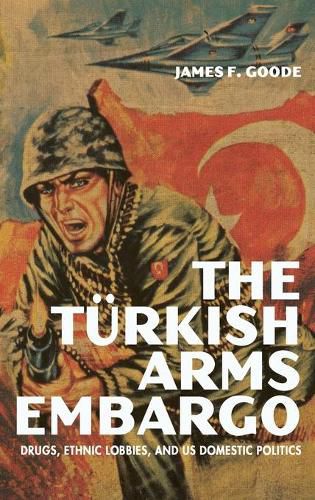Readings Newsletter
Become a Readings Member to make your shopping experience even easier.
Sign in or sign up for free!
You’re not far away from qualifying for FREE standard shipping within Australia
You’ve qualified for FREE standard shipping within Australia
The cart is loading…






This title is printed to order. This book may have been self-published. If so, we cannot guarantee the quality of the content. In the main most books will have gone through the editing process however some may not. We therefore suggest that you be aware of this before ordering this book. If in doubt check either the author or publisher’s details as we are unable to accept any returns unless they are faulty. Please contact us if you have any questions.
In August 1974, while Richard Nixon resigned and Gerald Ford began a prolonged battle with Congress over executive power, a crisis was occurring in Cyprus. Desperate to shore up its declining popularity with a foreign policy triumph, the military government of Greece tried to overthrow the government of the independent island nation. In response, the Republic of Turkey invaded Cyprus in order to protect Turkish Cypriots. The invasion led to the downfall of the junta in Athens, the beginning of a United States embargo on arms sales to its ally Turkey, and years of increased tension and mistrust between the two nations.
In his book, James F. Goode offers a revolutionary analysis of the complex factors leading to the imposition and continuance of the Turkish Arms Embargo. He demonstrates that, alone, the human rights issues surrounding the invasion fail to explain the resulting US-Turkish estrangement. Instead, he contends, factors including deep-seated Turkophobia, growing concern about a deadly heroin epidemic in the United States, and pro-Greek lobbies played important roles in heightening tensions and extending the embargo.
Goode draws on newly available archival materials from the Gerald Ford and Jimmy Carter Presidential Libraries as well as the personal papers of key senators and congressmen to present the most complete analysis of the affair to date. This timely study will not only change how this period is understood, but it will also provide valuable insights into the future of international relations.
$9.00 standard shipping within Australia
FREE standard shipping within Australia for orders over $100.00
Express & International shipping calculated at checkout
This title is printed to order. This book may have been self-published. If so, we cannot guarantee the quality of the content. In the main most books will have gone through the editing process however some may not. We therefore suggest that you be aware of this before ordering this book. If in doubt check either the author or publisher’s details as we are unable to accept any returns unless they are faulty. Please contact us if you have any questions.
In August 1974, while Richard Nixon resigned and Gerald Ford began a prolonged battle with Congress over executive power, a crisis was occurring in Cyprus. Desperate to shore up its declining popularity with a foreign policy triumph, the military government of Greece tried to overthrow the government of the independent island nation. In response, the Republic of Turkey invaded Cyprus in order to protect Turkish Cypriots. The invasion led to the downfall of the junta in Athens, the beginning of a United States embargo on arms sales to its ally Turkey, and years of increased tension and mistrust between the two nations.
In his book, James F. Goode offers a revolutionary analysis of the complex factors leading to the imposition and continuance of the Turkish Arms Embargo. He demonstrates that, alone, the human rights issues surrounding the invasion fail to explain the resulting US-Turkish estrangement. Instead, he contends, factors including deep-seated Turkophobia, growing concern about a deadly heroin epidemic in the United States, and pro-Greek lobbies played important roles in heightening tensions and extending the embargo.
Goode draws on newly available archival materials from the Gerald Ford and Jimmy Carter Presidential Libraries as well as the personal papers of key senators and congressmen to present the most complete analysis of the affair to date. This timely study will not only change how this period is understood, but it will also provide valuable insights into the future of international relations.